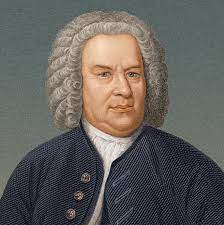Johann Sebastian Bach (1685–1750) was one of the greatest composers of all time. He composed over 1,100 works in almost every musical genre, from organ and harpsichord to violin and choir. He was also a devout Christian and a devoted father of 20 children.
However, at the age of 64, his vision started to deteriorate. He could no longer play the organ, compose music or direct choirs and orchestras. He was afraid of losing his job and his livelihood. What caused his blindness and how did he cope with it?
The most likely culprit was cataract, a clouding of the lens of the eye that reduces vision and causes glare. Cataract is a common condition in older people, especially those who have been exposed to sunlight for long periods of time. Bach was known to have played the organ without glasses even in his presbyopic age, which suggests that he was nearsighted and had to strain his eyes to see clearly.
In 1750, there was no effective treatment for cataract. The only option was a risky procedure called couching, which involved pushing the lens back into the eye with a needle. This sometimes restored some vision, but often led to complications such as infection, inflammation, glaucoma and retinal detachment.
Bach decided to undergo couching after being persuaded by his friends and by a travelling British eye surgeon named John Taylor. Taylor was a notorious quack who claimed to be able to cure any eye disease with his secret remedies. He travelled across Europe in a coach decorated with eyes and the slogan “Qui dat videre dat vivere” (He who gives sight gives life). He charged exorbitant fees and often fled after blinding his patients.
Taylor operated on Bach’s both eyes in March and April 1750. The surgery was a disaster. Bach suffered from intense pain and became completely blind. He also developed a severe infection that spread to his whole body. He was confined to bed and could not work or enjoy music anymore.
Bach did not give up hope, though. He continued to pray and compose music in his mind. He dictated his last work, The Art of Fugue, to his son-in-law Altnikol. He also received a visit from his old friend Georg Philipp Telemann, who played some music for him.
In July 1750, Bach’s vision suddenly returned for a brief moment. He thought it was a sign of God’s mercy and thanked him for it. However, it was only a temporary relief. A few days later, he suffered a stroke and died on July 28.
Bach’s blindness was a tragic end to a brilliant career. He was one of the victims of Taylor’s malpractice, along with another famous composer, Georg Friedrich Handel, who also became blind after being operated by him. Taylor continued to practice until his death in 1772.
Bach’s legacy lives on in his music, which is admired and performed by generations of musicians and listeners. His works are considered masterpieces of harmony, counterpoint and expression. He is widely regarded as one of the greatest composers in history.


Comments are closed